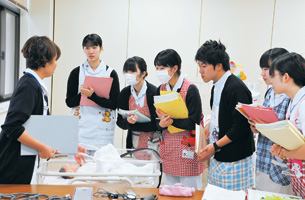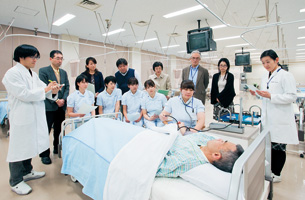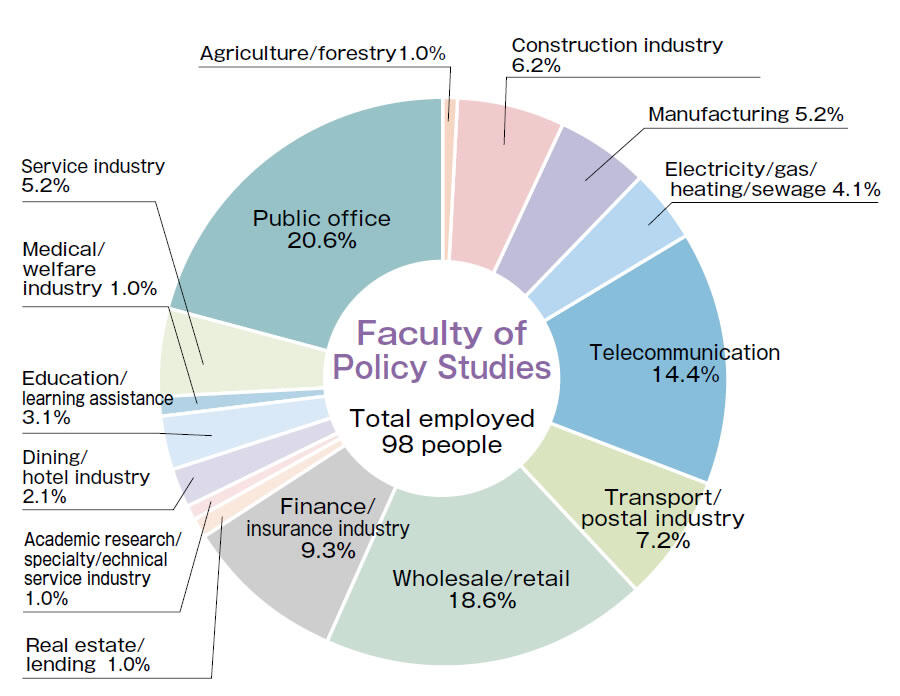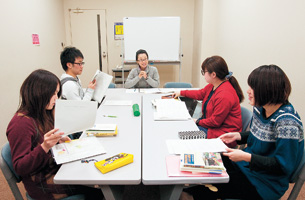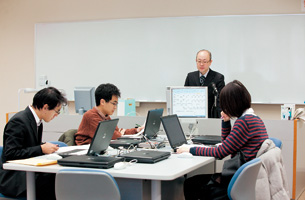CAUTION This Information as of 2019.
Faculty of Nursing
Faculty of Social Welfare
|
Department of Social Welfare
Students widely study ways to help the community - from interpersonal assistance, to support of the community,systems and policies to function.
Department of Human Welfare
Our students acquire psychology and human development in addition to the Social welfare basis, and learn about the assistance on various stages of life.
■Qualifications and licenses
Eligibility for admission to the National Examination for Certified Social Workers / Eligibility for admission to the National Examination for Psychiatric Social Workers / Qualification for appointment as social welfare secretary / Qualification for appointment as childcare worker / Qualification for appointment as child welfare officer (There are cases that need one-year work experience in designated facilities after graduating.)
■Qualifications that can be acquired only through the Department of Human Welfare
Qualification as a nursery teacher / First-class certificate for kindergarten teachers / Qualification as a Certified Psychologist of the Japanese Psychological Association.
|
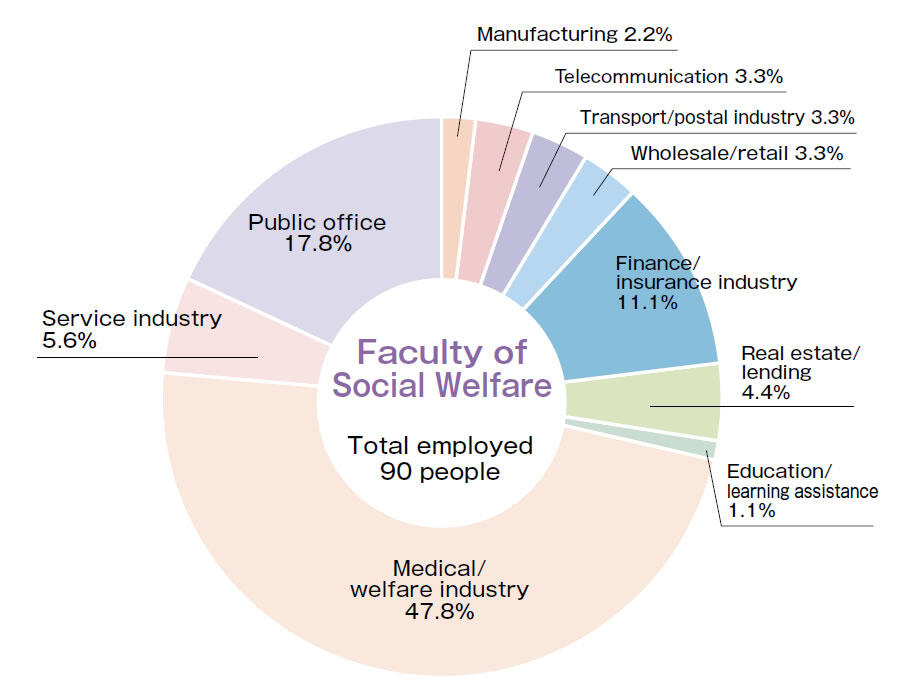 |
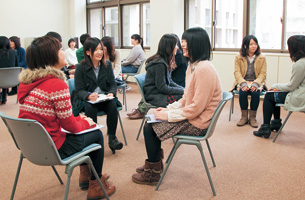 |
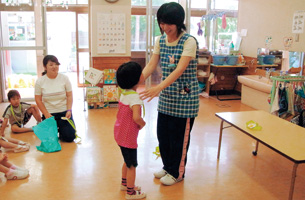 |
Faculty of Software and Information Science
- Based on the concept of practical learning and research, students learn about development and application of advanced information technology based on the curriculum which supports students' development in their independent initiatives.
- Students are offered the opportunity to collaborate with other students at different levels of their education in seminars that encourage an active learning style of independent and interactive research, presentation and debate.
- As a school that collaborates with the Education Network for Practical Information Technologies (enPit: project for Ministry of Education, Culture, Sports, Science and Technology) to develop advanced IT human resources of industry-university collaboration, we aim to develop innovative human resources who can create new assets and services using ICT/IoT with an intellectual and inquiring mind, as well as creativity.
■Qualifications and licenses
First-class teaching certificate for upper secondary school(Information)
■Qualifications and certifications relevant to the curriculum
Fundamental Information Technology Engineer Examination / Applied Information Technology Engineer Examination
|
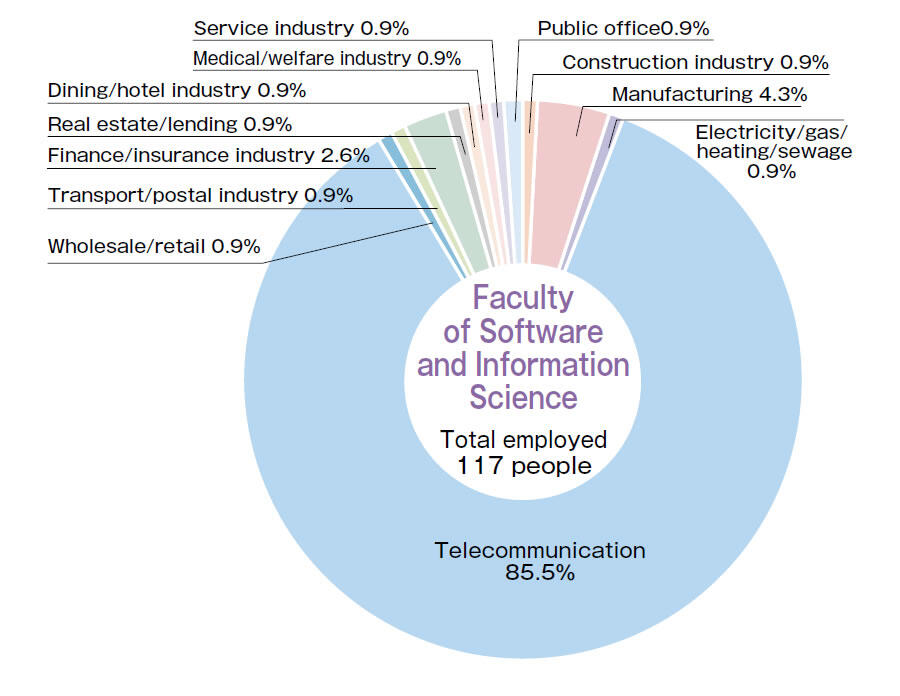 |
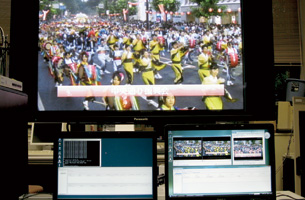 |
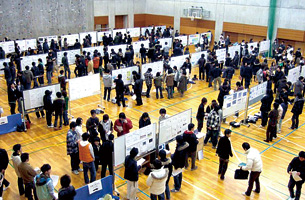 |
Faculty of Policy Studies
Morioka Junior College
|
Department of Life Science
- There are the Lifestyle Design Major which analyzes human lifestyle scientifically such as energy and environmental issues with "Housing" and "Clothing" as its theme, and also the Food and Nutrition major which examines "Food" from the wide perspective and aims to provide knowledge and techniques necessary to acquire the qualifications for becoming a nutritionist. We endeavor to cultivate individuals with the practical ability and knowledge necessary to respond to the needs of contemporary society.
Department of International Cultural Studies
- The goal is to educate globally-minded individuals with high language and communication skills, capable of active involvement in the international society.
■Qualifications and licenses
Eligibility for admission to the National Examination for Second-class Architects / Eligibility for admission to the National Examination for Architects for Wooden Buildings (Lifestyle Design Major) / Certificate of (Food and Nutrition Major)
|
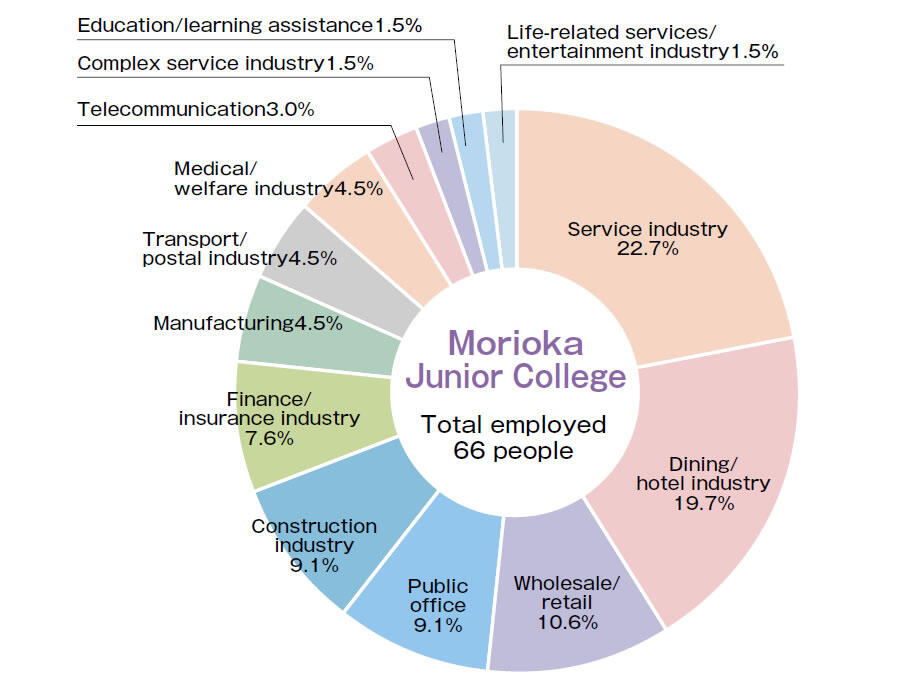
|
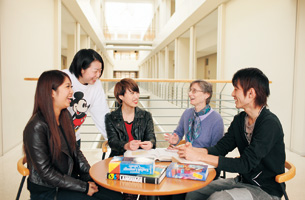 |
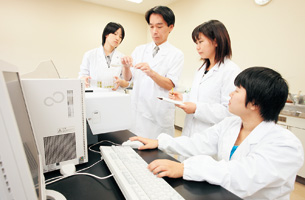 |
Miyako Junior College
|
Department of Business Management and Information Sciences
- Students acquire the knowledge and techniques behind the advanced use of information as well as theories and practices related to management and accounting.
- From the first year all students have their own laptop on which they cultivate and practice computer skills.
- Students acquire the professional knowledge, as well as the ability, to select and apply information; they also develop a broad view of the world and qualities needed as regional leaders.
■Qualifications and certifications relevant to the curriculum
Certified Secretary Examination / Information Technology Engineer Test / Official Business Skills Test in Bookkeeping / EIKEN Test in Practical English Proficiency / PC Certification Examination / TOEIC / TOEIC BRIDGE
|
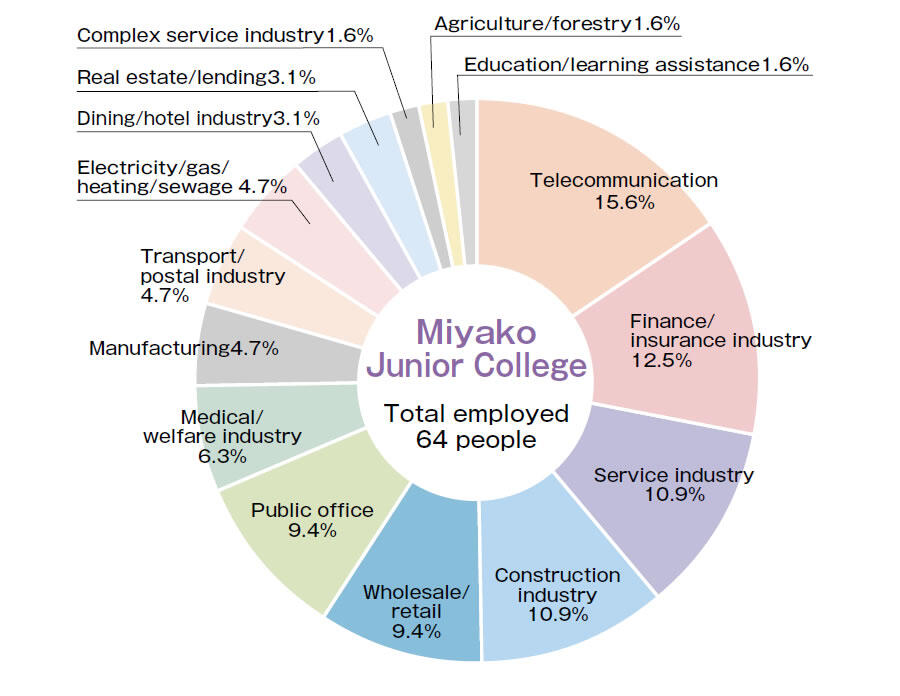 |
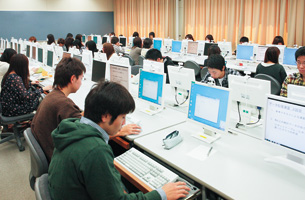 |
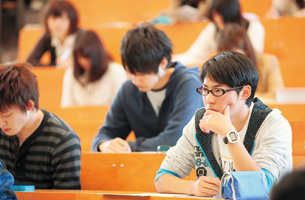 |



